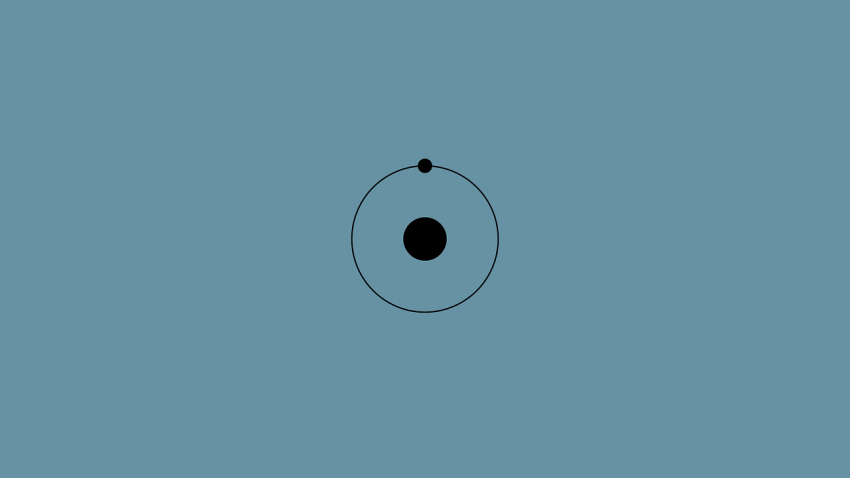Exploring The Philosophy Of A Sustainable Person

Over 200 definitions of the term 'sustainability' exist, what better way to confuse a concept and practice?
For the everyman, the term could simply translate to a process or model that will allow resources used to replenish in a continuous manner. In business terms, the same concept applies, although it may be set in greater scale and with more metrics involved, such as profitability.
Economists may view sustainability as a term involving supply and demand being met consistently, or they may add deeper layers to the concept such as a circular or green economy. If we tie in sustainability to mean meeting both current and future demands without further harm to the environment, then there must be a broader acceptance and understanding of this term.
The challenge, therefore, for the individual in society, is figuring out where they stand with all things considered and how to live in an eco-friendly manner. It can be challenging to track every action and behaviour we participate in and if it will hurt the planet. It's also an almost impossible accounting task. Questions will always arise such as whether or not to feel guilty when we use a one-time paper coffee cup, or when we dispose of plastic that cannot be recycled.
Another of these questions is that if we do care, and if we do put the effort in to reduce personal waste and our carbon footprint, is that enough and does it matter? The answer to the latter is almost certainly a yes, however, the question of whether it is enough to solve environmental damage and waste is a question that has no one answer.

Many guides online will describe different ways and methods of reducing waste, such as upcycling old belonging into new ones, how to find uses for plastic bottles, ways to use less electricity, water and gas, along with urban travel guides that encourage car-pooling or public transport. But again, with the massive quantities of carbon gases still being emitted at both a personal and industry level, is there going to be enough quantifiable change?
To answer this question involves breaking it down into smaller segments and also bringing in personal values as well. Thinking long-term, most of us wouldn't want to have grown up in a world polluted with harmful gases, scarce sources of freshwater and oceans filled with garbage. So why should future generations face the same scenario?
This current generation of course could blame most of these issues on the previous one's lack of environmental awareness, which only really became recognized in the 1970s. However, we then have the question of why fifty years of innovation still hasn't solved these issues. It has certainly come a long way, however, we are still under threat of unrepairable damage and ecological harm.
There are, however, promising new government policies on the way which could negate these worries, for example, the UK will be ending the sale of new petrol and diesel cars by 2030. This new regulation in line with the United Nations Sustainable Development Goals offers an optimistic backdrop for those concerned that larger players do not care about the environment.
I recently purchased a reusable cup from Starbuck's, thinking that my occasional visit to this brand may have less of a wasteful effect, but I also second-guessed myself wondering if this was simply a marketing ploy to get people to return to the store for the small discount and the background-looming anecdote of 'well I have the reusable cup now so I might as well go'. Much to my distaste, the cashier forgot about my reusable cup and gave me coffee in a standard cardboard one, with the primary purpose becoming defeated.
In a deeper analysis of this issue, I had also wondered if you had used the drive-through stating that you had a reusable cup, would they make it in a cardboard one and then pour it into the reusable one? Previous answers from Starbucks workers on Quora have stated that this would be the case.
What is the environmental impact of Starbucks creating plastic reusable cups?
Like many large and profitable companies, Starbucks has its own stance and targets towards achieving a reduced environmental impact. One of the most prominent targets the company has set is to reduce its carbon emissions by 50% by the year 2030. By offering reusable plastic cups to consumers, the company can aim to tackle the emissions produced in the manufacture of paper ones.
According to The Guardian, a typical paper coffee cup leaves a footprint of 60.9 grams of C02 in the air after production. That's a fairly high number if you consider how many are manufactured and then disposed of, never mind the resources needed in recycling. A reusable cup is most certainly the more sustainable strategy, according to research from Anthropocene, a reusable cup would have to be utilised between 20-100 times to match for the emissions caused by the paper type.

The key question to all of this is of course, is the durable cup actually reused often and often enough? I purchased my reusable cup after being informed of its availability by a staff member via the drive-through, so it is clear that the company has made an effort to inform consumers of this option, the only issue is when they forget to utilise the reusable cup brought in by consumers, this very fragile concept is destroyed. We can safely assume that many who purchase a reusable cup have a personal value attributed to reducing the harm caused, and if not, then it still benefits the environment.
Starbucks has implemented a number of other environmental practices under its belt, some of which are far more strategic and complex than the offering of reusable cups. Although this coffee business has been criticized for high water waste, they take a multi-faceted approach to sustainable business practice. Less so can be said about the companies creative accounting habits, but that's a story for a different topic.
The multi-dimensional approach taken by Starbucks along with many other major companies in environmental management is an approach that the aware consumer and individual will likely take as well. For every individual carbon footprint, there will be unique metrics based on several factors including age, lifestyle, occupation and habits.
There are several online calculators which provide the service of working out your carbon footprint, although some do require you to amass multiple different metrics. The WWF has a fairly quick and easy calculator which gives an overall outline of your household's carbon footprint, which can be compared with other surrounding areas and whether or not it is in line with the current climate goals.
The Individual Perspective
In order to clear up all of the difficult nuances and actions we take on a daily basis to determine whether or not they are sustainable and support our values towards the environment, I believe that the best approach is one based on first principles thinking.
First-principles thinking presents the idea that by breaking down complex problems into individual elements, we can create new assumptions that cannot be further deduced.

The concept essentially allows us to clarify our values before we approach a complex problem or idea. Since sustainable living can present a range of complexities surrounding our values, I believe that this approach could be a good solution to organise our thoughts on the matter.
Once we have established the problem with clarity, we can then take the second step to broaden our assumptions about potential solutions. We must think broadly by bringing in many different aspects, but staying focused on the first principle at hand.
Below are listed some general thoughts and principles that consumers may have pertinent to the global climate emergency. The solutions to these issues or steps that could be taken to mitigate them are multivariate, but they will work towards the same goal.
'I wish there was less plastic waste in the ocean' - Avoid single-use plastics, support non-profits cleaning up the ocean; The Ocean Cleanup, 4ocean. Lobby for more conservative environmental laws, join or organise river cleanups, recycle properly. Support eco-friendly political parties.
'I wish we could emit less carbon dioxide into the atmosphere - Use public transport more frequently and car share. Eat less meat. Support and market for sustainable-supporting brands. Consider your water, electricity and gas usage.
'I want to reduce my food waste' - Keep a food inventory itemized with dates and keep track of your food storage.
'I want to travel more sustainably' - Walk where you can, carpool, use public transport where possible, consider the purchase of more modernized cars such as hybrids or electric.
'I want to reduce my household's water usage' - Shower rather than bath, keep running taps to a minimum.
'I want to use more recycled products and recycle more' - Check products before you buy for recycling logos or information, make sure everyone in your household is using the correct waste bins for disposed materials, shop at environmentally-friendly businesses, such as Lush or The Body Shop.
'I want to spend less money with companies that do not value sustainability' - Check company missions and sustainability metrics online for their position on the matter, look for independent sources that are critical of organisations.
Of course, these are all just simple suggestions, if you were to be more of a fundamentalist to the concept of first-principles thinking, then an extra step of effort would be required before you make decisions in life, if you want less plastic waste in the world, you may have to think twice about buying that particular product in a store if it uses unrecyclable plastic, even if it is to your own inconvenience.
Bear in mind, however, you may have conflicting thoughts about your choice, thinking perhaps 'if there are still so many plastic polluting manufacturers in the world, what difference will my decision make?' Through applying first principles thinking, we can defeat this argument as it comes back to a personal value; 'I want less plastic waste in the world so I am going to decide against buying unsustainably'.
Therefore by selecting an option that supports our personal values, we have applied first principles thinking and have decided internally that the effort is worth making, regardless of the actions of external entities. Adding to this, in support of our values towards the planet, we can also remember that existing and new regulations previously mentioned will also support us.
The fundamental truth to the matter is that by using less plastic or other harm-causing materials, there will be less plastic waste per consumer and harm to the planet. A difference will be made, however small, but not trivial.
